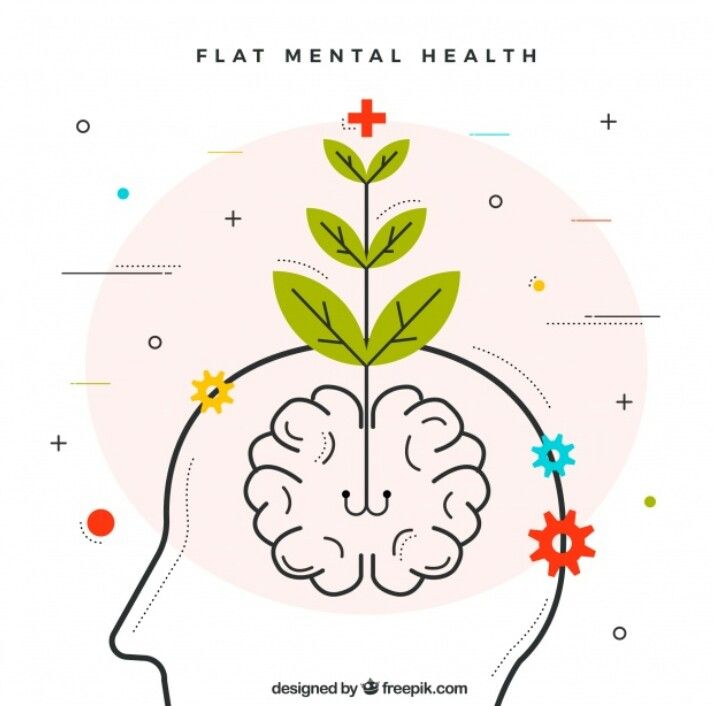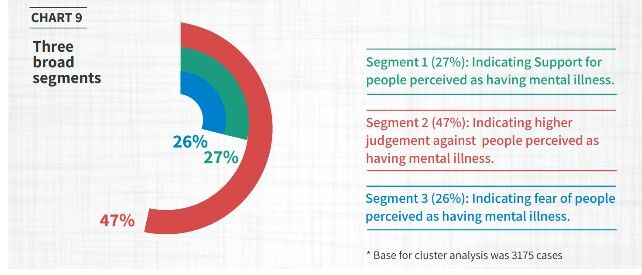Mental Health: Some Fundamentals
Jun 13, 2019 • 40 views
Mental health. Seems like a buzz word, with everyone throwing it around on the internet. Breathe, calm, and relax. Perfect. That’s our solution to all mental health upsets, but it is so much more than this , so much we fools ignore; we feel we are aware, because we are educated and urbane (most of us). Well surprise, although 87% of Indian population is aware about mental health problems, still majority of them uphold stigmas and stereotypes! The World Health Organization reported that India has the most cases of depression (as of 2018), yet we find every third person saying “it’s all in your head”. Yes, it is all in my head, and it doesn’t go away.
It is essential for us to know exactly what mental health is. It is “a person’s condition with regard to their psychological and emotional well-being.” Psychological as in relating to one’s mind and emotional, that is connected to one’s emotions and feelings. Mental health is often ignored for there are few ‘external’ or overt symptoms; what we forget is that health has various aspects besides the physical one: mental, emotional, creative and even spiritual.

The first and foremost folly of ours is being judgmental and all-knowing. Depression automatically gets associated with tragedy and trauma, OCD with cleanliness, schizophrenia with madness. Mental illnesses have various causes and effects, most of which we might be unaware about. They can have a biological base ranging from genetics to injury. Often people with a genetic history of psychological illness are prone to the disease, due to passing down of those genes. Brain injuries and infections can also affect neurotransmitters, leading to mental damage. Psychological causes may include significant, life-altering incidents, neglect or abuse; while environmental factors include societal attitudes, family life, etc. Even small everyday problems, over an extended period of time can be the cause of psychological disturbance!
If we are so ‘woke’ about mental health online, we must also be aware and accepting of its various manifestations in real life. Mental problems do not always mean intense sadness, hallucinations or obsession. They can have subtle appearances like constantly double checking things, or debilitating like break-downs or delusions. In fact, there are problems like kleptomania (a disorder in which a person compulsively steals), or ADHD (attention deficit hyperactivity syndrome) are not even considered problems. Often dismissed as habits and reluctance to follow norms, people suffering from these are viewed as problematic elements. And these problems do not have home remedies! Of course a welcoming and empathetic environment help, but professional advice is required for complete recovery.

Another habit of ours is attaching stigma, sometimes unknowingly. We all are outwardly sympathetic, but behind closed door we all make snide comments and pass verdicts. A person bound to a wheel chair does not choose to be in that state; similarly a person suffering from a disorder does not choose to be sad or aggressive or behave ‘weirdly’ (as people put it) all the time. We need to stop viewing people only in terms of their psychological issues. People are so much more than the symptoms of their disorder. Your current mental state is not who you are as a person, so extend this courtesy to others as well.
Most importantly, mental health is not only the absence of disorders, it is over all wellbeing. You might be experiencing anxiety right now: this does not mean you definitely have anxiety disorder, but it also does not mean your mental health is fine. In layman terms, a cold is not as serious as flu, but it still requires attention. So stop treating your battered psychological issues as your personality. Sad is not a personality type, nor is anxious. Introspect and pay attention to yourself and to those around you. Some changes in behavior patterns may not be phases, some traumas are not just shock, and some habits are not mere habits. And lastly, support. Do not assert that you can understand for you might not be able to. Do not blame the person for not wanting to heal; their illness might be the only thing they can hold on to. Support is either unconditional, or just a convenience. So be sensitive and adjusting. This might be the least you can do for a suffering person.
